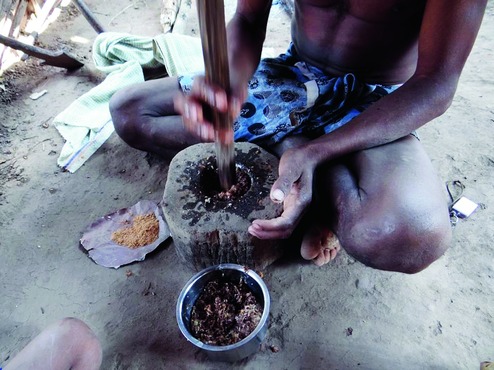
Koraput: Tribal people are known for their unique culture, lifestyle and food habits.
Boipariguda is 45 kilometres from Koraput. The tribals livings here eat red ants and their eggs believing they have medicinal benefits.
During this time of the year, these people eat red ants found in leaves and nodes of the branches of big trees inside the forest. These ants are locally known as kai and tapang and build hives ( kai puda) on tall trees to lay eggs.
"We have been eating red ants and their eggs for generations. Consuming red ants cures acidity and enhances eyesight and its eggs helps to keep the body cool and prevents sunstroke," said Sukra Durua, a tribal healer of Siribeda village in the block.
It is not easy to get the hives from the trees. The male ants protect the hives with several layers of security rings right from the bottom of the bark to the top of trees where the female ants lay eggs. If someone tries to climb the tree, the male ants attack fiercely and bite. However, the tribals believe that the ants' bite also helps cure several diseases.
"The ant-bite is very painful. By the time we reach the hive, there are hundreds of ants' crawling all over us and biting. But we willingly get bitten as it cures several skin disease and provides relief from joint pains," said Jaduram Durua of Malipadar village.
He said each hive weighed around two kilograms.
After collecting the hive, the tribals place the hives on mild flame to kill the female ants and separate the eggs.
While a soup is prepared from the ants, the eggs are fried.
"Apart from the medicinal benefits as claimed by the tribals, it is a staple diet for these forest-dwellers. The ants and eggs are also sold at weekly markets in the tribal areas. They are in high demand," said Prafulla Padhi, an educator.











